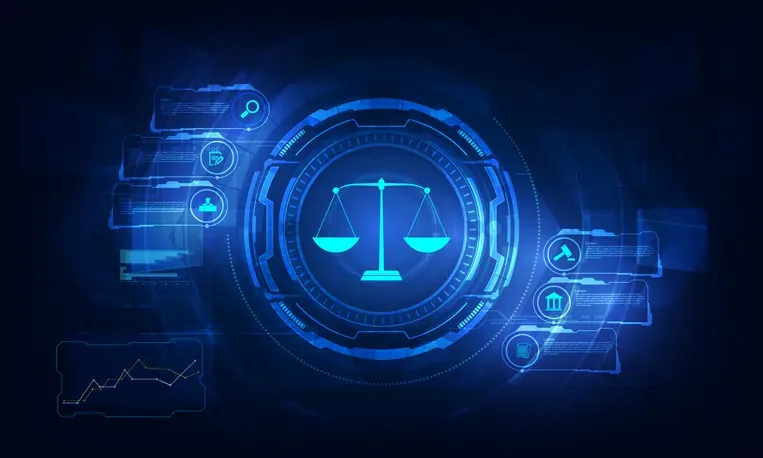
An overview of fintech regulations and compliance issues
The financial technology (FinTech) sector has seen explosive growth over the past decade, revolutionizing how businesses and consumers manage finances, payments, investments, and more. However, this rapid expansion has also introduced significant regulatory and compliance challenges, as traditional financial laws struggle to keep pace with innovation. This comprehensive guide delves into the heart of FinTech regulations and compliance issues, providing a thorough analysis of the landscape, challenges, and the path forward for regulators and FinTech entities alike.
Fintech regulations: a new frontier
Understanding the Regulatory Landscape
The regulatory environment for FinTech companies is complex and multifaceted, encompassing a broad spectrum of legal, financial, and operational considerations. At its core, FinTech regulation aims to ensure consumer protection, financial stability, and market integrity, while also fostering innovation and competition.
Global Perspectives on FinTech Oversight
FinTech regulation varies significantly across jurisdictions, reflecting differing market priorities, legal systems, and levels of technological adoption. This section explores the regulatory approaches of key financial markets, including the United States, European Union, and Asia, highlighting the similarities and differences in FinTech oversight.
Key Regulatory Bodies and Their Roles
Identifying the main regulatory authorities involved in FinTech supervision, such as the Financial Conduct Authority (FCA) in the UK, the Consumer Financial Protection Bureau (CFPB) in the US, and the European Banking Authority (EBA) in the EU, and their specific roles and responsibilities in fostering a safe and competitive FinTech ecosystem.
Compliance challenges in the fintech sector
Navigating the Complex Web of Financial Regulations
FinTech firms face the daunting task of complying with a vast array of financial regulations, which can vary by country, financial service, and even technology used. This section outlines the major regulatory hurdles FinTech companies encounter, from anti-money laundering (AML) laws to data protection and privacy standards.
The Impact of Technology on Compliance
Technology not only drives the FinTech industry forward but also poses unique compliance challenges. Here, we delve into how emerging technologies like blockchain, artificial intelligence (AI), and big data analytics are reshaping the regulatory compliance landscape.
Balancing Innovation with Regulatory Compliance
One of the biggest challenges for FinTech companies is maintaining the delicate balance between innovation and compliance. This section discusses strategies for FinTech firms to foster innovation while ensuring full compliance with existing laws and regulations.
Solutions and Best Practices for FinTech Compliance
Leveraging Technology for Compliance (RegTech)
Regulatory Technology (RegTech) solutions offer FinTech companies powerful tools to streamline compliance processes, reduce costs, and improve accuracy. This section examines how RegTech is transforming compliance management in the FinTech sector.
Collaboration Between Regulators and FinTech Firms
Promoting a collaborative approach between regulators and FinTech companies is crucial for developing a regulatory framework that supports innovation while protecting consumers and the financial system. Here, we explore initiatives and frameworks that encourage partnership and dialogue between the two parties.
Case Studies: Navigating FinTech Regulations Successfully
Through real-world examples, this section illustrates how FinTech companies have successfully navigated regulatory challenges, highlighting the strategies and tools they’ve employed to achieve compliance and market success.
The future of fintech regulations and compliance
Emerging Trends in FinTech Regulation
As the FinTech industry continues to evolve, so too will the regulatory landscape. This section predicts future trends in FinTech regulation, including the potential for harmonized global standards and the increasing role of digital identity verification.
The Role of International Cooperation in FinTech Oversight
Given the global nature of the FinTech industry, international cooperation among regulatory bodies is essential for creating a coherent and effective regulatory environment. This section discusses the importance of cross-border regulatory collaboration and the initiatives underway to facilitate this.
Emerging technologies and their regulatory implications
As the FinTech landscape continues to evolve, emerging technologies such as blockchain, cryptocurrency, and AI are pushing the boundaries of traditional financial services. However, these advancements also bring about new regulatory considerations. This section delves into the regulatory implications of these technologies and how they are shaping the future of financial services.
Blockchain and cryptocurrency: navigating a decentralized world
The rise of blockchain and cryptocurrencies has posed significant challenges for regulators, given their decentralized nature and the lack of a central authority. This section explores how regulatory bodies are approaching the oversight of blockchain technology and digital currencies, focusing on issues related to security, consumer protection, and anti-money laundering efforts.
Artificial intelligence in fintech: ethical and compliance concerns
AI and machine learning are transforming the FinTech industry, offering innovative solutions for everything from fraud detection to customer service. However, the use of these technologies also raises ethical and compliance concerns, particularly regarding data privacy, algorithmic bias, and accountability. Here, we examine the regulatory considerations surrounding AI in FinTech and the measures being taken to address these concerns.
Data privacy and protection in the digital age
In an era where data is a crucial asset for FinTech companies, ensuring the privacy and protection of consumer information is paramount. This section discusses the regulatory requirements related to data privacy, such as the General Data Protection Regulation (GDPR) in the EU, and the challenges FinTech firms face in complying with these laws.
Enhancing consumer protection in fintech
As FinTech companies offer new and innovative financial products and services, ensuring consumer protection remains a top priority for regulators. This section covers the regulatory measures in place to protect consumers in the digital financial services market, including transparency, security, and redress mechanisms.
The role of fintech in financial inclusion
FinTech has the potential to significantly enhance financial inclusion by providing access to financial services for underserved and unbanked populations. This section explores the role of FinTech in promoting financial inclusion and the regulatory considerations to ensure these services are accessible, affordable, and safe for all users.
Strategies for effective risk management in fintech
Risk management is a critical aspect of regulatory compliance for FinTech companies. This section outlines the strategies and best practices for managing risks associated with financial technology operations, including credit risk, operational risk, and cybersecurity threats.
Adapting to regulatory changes: a roadmap for fintech firms
The regulatory environment for FinTech is continuously evolving, posing challenges for companies trying to stay compliant. This section provides a roadmap for FinTech firms to adapt to regulatory changes, including staying informed about legislative developments, engaging with regulatory bodies, and implementing flexible compliance frameworks.
The impact of fintech on traditional banking and financial services
FinTech is not only reshaping the regulatory landscape but also the entire financial services industry. This section examines the impact of FinTech innovations on traditional banking and financial services, discussing the challenges and opportunities for incumbents and new entrants alike.
The journey toward effective FinTech regulation and compliance is ongoing, requiring a concerted effort from regulators, FinTech companies, and other stakeholders. By striking the right balance between innovation and oversight, the FinTech industry can continue to thrive, offering transformative financial services while ensuring the safety, stability, and integrity of the financial system.
Faqs
What are FinTech regulations? FinTech regulations refer to the laws and guidelines governing the operation of financial technology companies, aimed at ensuring consumer protection, financial stability, and market integrity.
Why are compliance issues a challenge for FinTech companies? Compliance issues pose a challenge due to the rapidly evolving nature of technology, the complexity of financial laws, and the variation in regulations across different jurisdictions.
How can FinTech companies navigate regulatory challenges? FinTech companies can navigate regulatory challenges by leveraging RegTech solutions, fostering open dialogue with regulators, and staying informed about changes in the regulatory landscape.
What is RegTech and how does it help with compliance? RegTech, or Regulatory Technology, refers to the use of technology to streamline and enhance regulatory compliance processes, helping companies to manage their regulatory obligations more efficiently and accurately.
Can FinTech innovation and regulatory compliance coexist? Yes, FinTech innovation and regulatory compliance can coexist. By adopting a proactive approach to compliance and leveraging technology, FinTech companies can innovate responsibly within the regulatory framework.
What is the future of FinTech regulation? The future of FinTech regulation is likely to involve more harmonized global standards, increased use of technology for compliance, and stronger international cooperation among regulatory bodies to address the challenges of a global FinTech market.

